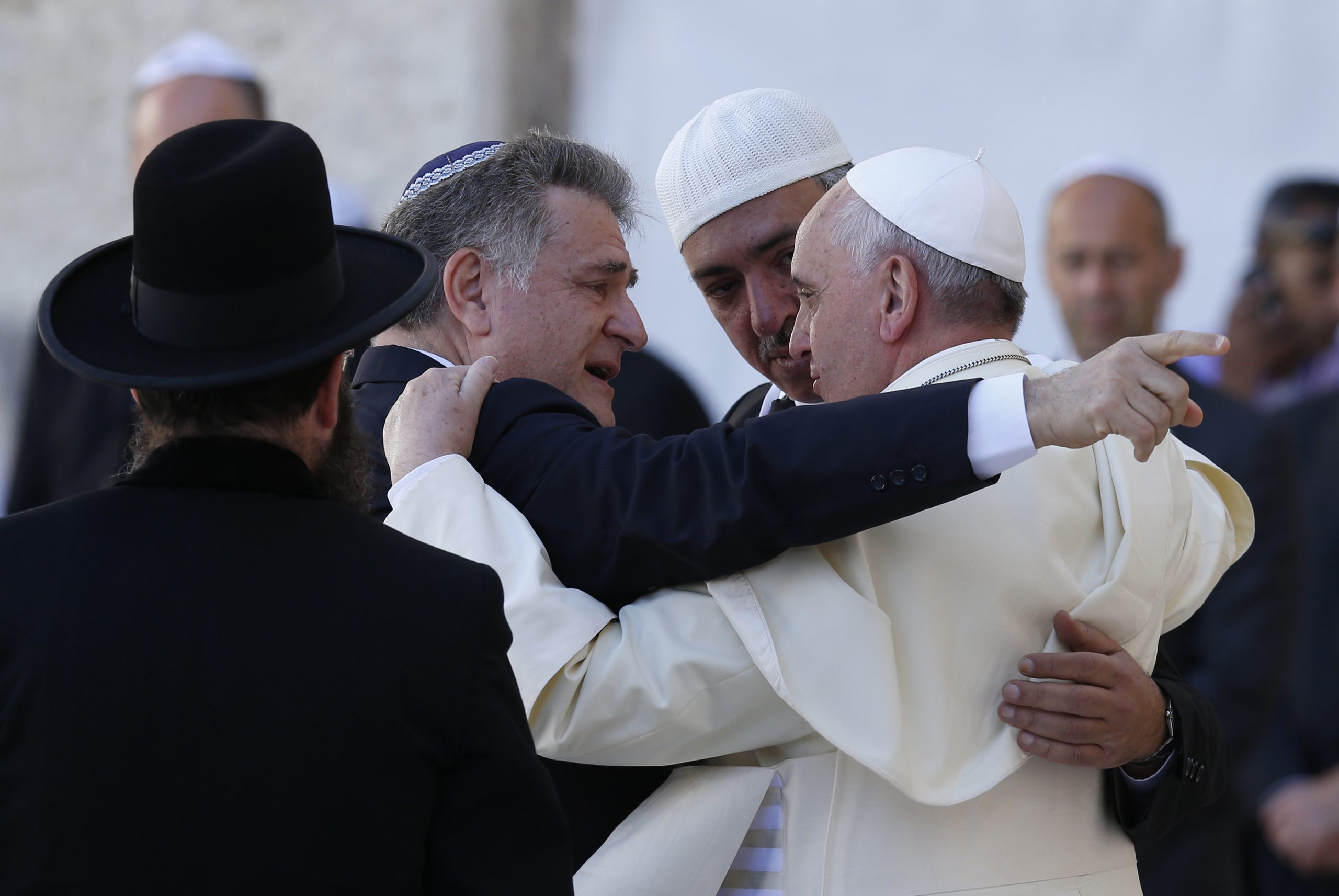Photo by
on
Keywords: Catholics and Jews, interreligious dialogue, friendship, diplomacy
In the realm of interreligious dialogue, the relationship between Catholics and Jews stands out as a testament to the power of genuine friendship. While recent events have sparked disappointments and criticisms, it is crucial to understand the broader context that encompasses this profound bond. As we delve into the intricacies of this relationship, we discover that it transcends formal institutions, relying instead on the heartfelt connections between individuals. This article explores the depth of the friendship between Catholics and Jews, highlighting the significance of personal gestures and emphasizing the importance of nurturing this relationship beyond political and diplomatic considerations. Let’s explore The Deep Bond Between Catholics and Jews: Beyond Diplomacy.
The Power of Authentic Friendship

Interreligious dialogue, at its core, is an expression of the connection between different faith traditions. While formal institutions play a vital role in facilitating this dialogue, the most fruitful exchanges occur between religious leaders who genuinely desire to engage with one another, unburdened by formal obligations. True success in interfaith dialogue lies in the personal connections forged between individuals, rather than the expected conversations between those with official roles in the dialogue.
When tragedy struck on October 7th, Jewish voices, both in Israel and the diaspora, voiced their disappointment regarding the Catholic Church’s response to the terrorist attacks. There were concerns that the pope had not adequately condemned the crimes of Hamas and had equated the actions of Hamas with those of Israel. Furthermore, Jewish expectations were that the church, as a result of the ongoing dialogue between Catholics and Jews, would stand in solidarity against Hamas’ terrorism. While criticism emerged, it is crucial to recognize that authentic friendship between individuals can transcend any potential shortcomings in official statements.
Personal Concern and Genuine Anguish
The power of true friendship is evident in the immediate response of many Catholic friends who reached out to their Jewish counterparts in the wake of the tragic events of October 7th. These gestures of concern were deeply personal and reflected genuine anguish for the Jewish people in the midst of their crisis. Such heartfelt concern carries more weight than any formal letters from senior church officials. It is in these moments that the Catholic Church’s engagement with the Jewish community moves beyond diplomatic relations and becomes a true friendship, one that is firmly rooted in personal connections.
One shining example of this intimate friendship is seen in the actions of Cardinal Pierbattista Pizzaballa, the Latin patriarch of Jerusalem. On October 16th, he made an exceptional offer, expressing his willingness to exchange himself for the Israelis who had been kidnapped. His sincerity was palpable, and his sorrow for the events was genuine. While Cardinal Pizzaballa expressed concern for the residents of Gaza and criticized certain Israeli practices, as the patriarch of his Palestinian flock, he unequivocally condemned Hamas’ criminal acts on October 7th and echoed the pope’s call for the immediate release of the kidnapped individuals.
Friendship Amidst Differences
The request for the Catholic Church to publicly condemn Hamas’ actions and support the State of Israel is not a call for an improved or deeper friendship. Instead, it reflects a desire for political and diplomatic actions. Demanding such actions suggests a formal and distant relationship between Jews and Catholics, rather than the intimate bond that friendship entails.
It is crucial to remember that the relationship between the Catholic Church and the Jewish people has evolved over nearly two thousand years, often marred by dark chapters. However, it is in the present era that this relationship is experiencing its finest moments. It is essential not to reduce this profound connection to mere politics or diplomacy, even in the face of events that impact the entire Jewish community. Political and diplomatic negotiations are the domain of politicians and diplomats from both Israel and the Vatican. Interreligious dialogue, on the other hand, must strive for deeper understanding, authenticity, and intimacy, transcending political considerations.
Nurturing the Friendship

The relationship between Catholics and Jews is not static but constantly evolving. It requires ongoing commitment and effort from both sides to foster a deep and lasting bond. While political alliances demand a strategic uniformity of vision, friendship allows for differences in perspectives without threatening the religious, theological, and spiritual connection.
To nurture and strengthen this friendship, it is essential to acknowledge the shared history between the Catholic Church and the Jewish people. This journey has been marked by twists and turns, often fraught with challenges. However, the present era holds immense promise for the relationship, one that can withstand differing political viewpoints. The focus should be on cultivating a more profound understanding of one another, allowing the relationship to flourish beyond political considerations.
Conclusion
The friendship between Catholics and Jews is a testament to the power of genuine connections between individuals. While recent events may have raised concerns and criticisms, it is crucial to understand the broader context of this relationship. Interreligious dialogue thrives when it is rooted in authentic friendships, transcending formal obligations and institutions. True success lies in personal gestures of concern and anguish, demonstrating the depth of the bond between Catholics and Jews. Nurturing this friendship requires a focus on understanding, authenticity, and intimacy, while keeping in mind that political and diplomatic considerations should not overshadow the spiritual connection that unites these two communities.
